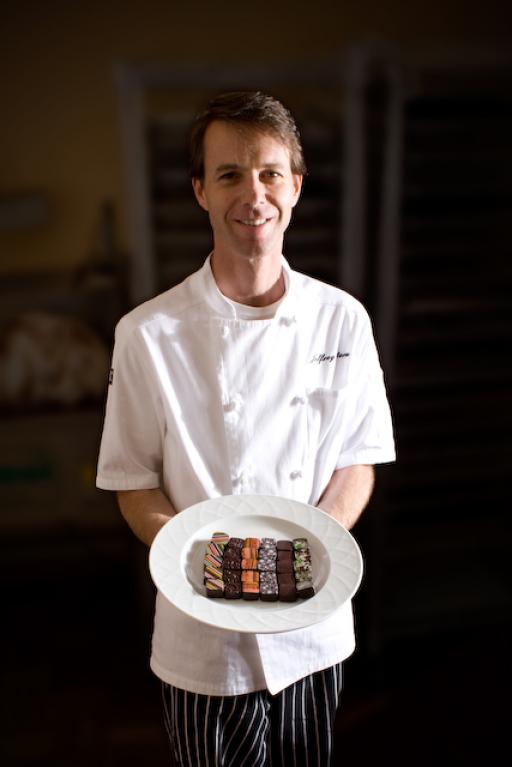
Recently Rated:
Why Isn't Aequare Chocolates Organic?
Aequare Chocolates gets frequent inquiries as to why we're not organic. It's not because we don't want to be, or don't support organic. It's because we simply can't, for all practical purposes, be organic.Organic Chocolate For Bars And Organic CouvertureFirst off, all organic chocolate actually produced here in country is shipped abroad and almost none of it is for sale here. It's shipped abroad directly by its producers because there is a market for it abroad. Consumers in North America and Europe, as well as many other places, have the disposable income that allows them the choice and provides them the ability to choose between organic or conventional products. Here in Ecuador, personal income levels are not high enough and consumption patterns are not adapted to supporting organic products.Were the local manufacturers of organic chocolate to try and sell organic chocolate here, they'd probably go broke. Most consumers would not see the value in paying a higher price for an organic product. It would have no additional recognized value in the local market and simply would not sell for a higher price. Organic producers would be forced to compete on price alone, and they would lose money.Since we don't actually make our own chocolate, and don't have the volume needed to have someone process organic beans into chocolate for us locally, we can't make organic chocolate here. We have approached two of the companies that do make certified organic chocolate about purchasing organic couverture from them. One is a large contract manufacturer and simply can't sell us what organic chocolate they produce because the production is for another company's product that is shipped abroad. The other offered to sell us couverture, but at a price that was so high it would be impossible to make money from.Our main supplier of chocolate, who is also the grower of the beans, uses minimal amounts of pesticides and fertilizers on the cacao plantations he manages. We have visited his plantation and received written descriptions of his pesticide and fertilizer use plans. Much of the cocoa grown in Ecuador exists in a semi-wild, untended state and is not cared for. To become certified organic is a lengthy, costly and complicated process that the majority of growers probably can't afford. In no way do we mean to belittle the value of organic; but the certification process can be more exclusive than inclusive.What About Confections With Organic Ingredients?You can already see why we can't make organic bars, and for many of the same reasons, organic confections. We can't even get the most important component, the organic chocolate, to start with.Beyond the chocolate, which is difficult enough to obtain, many other organic ingredients are simply not available in Ecuador. Let's start with sugar. The local manufacturers or organic chocolate temporarily import their organic sugar from abroad. Temporary importation is a very complex, bureaucratic, and costly process. Temporary importation allows the user of the product to avoid paying duties on it by guaranteeing the product is going to be shipped out of the country again within a certain time frame. Since it's only coming into the country as an input for a specific product that is destined for export, no duties are levied on it. This also means that it's not for sale on the open market.Organic dairy products are non-existent in Ecuador. While for practical purposes many dairy products could be considered "organic" because of the non-industrialized nature of most of the dairy industry here, that's obviously not good enough for consumers in industrialized countries looking for an official seal of approval. So getting organic cream and butter in Ecuador with an internationally recognized organic seal?...forget it.Then there are other items that go into our products, such as fruit purees, citrus zests, and essential oils, most of which are sourced locally but very few of which are organic, with the exception of the lemongrass oil from Fundacin Chankuap used to flavor our lemongrass bars.So due to costs, volume constraints, regulations, and lack of availability of organic ingredients, it's difficult if not impossible to do organic confections here in Ecuador. Finally, making 100% organic chocolate, as well as confections, is not compatible with our direct trade efforts. But more on direct trade in a later post.

Jeff,I have been following your progress with great interest. Sounds like we have encountered similar working conditions. Although I do not make chocolate, I am a producer of "superior" quality cacau beans. I am from the USA and 15 years ago moved to Bahia Brasil to manage and operate her family cacau farms.I'm interested in your story. How did you arrive in Ecuador? How long have you been there? Whats the history of your chocolate making?We seem to have very similar thoughts about the marketing of "certified" products in Latin America. It's difficult to describe the labor and cost restrictions one encounters when working in the cacao regions of S. America. Although at first look, the costs to produce are very low, a complete analysis of the "systems" in place and transportation costs make competition very tough.If you have a free moment, please contact me at cacaufarmer@yahoo.com and let me know a bit more about AEQUARE and Jeff SternBest regardsJim Lucas